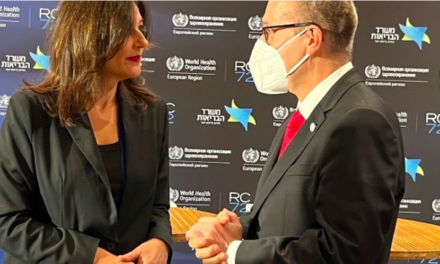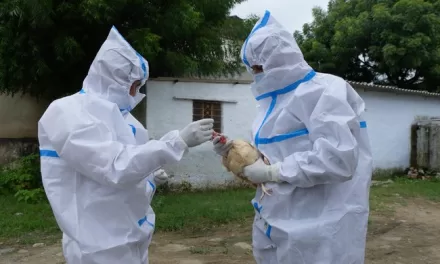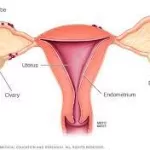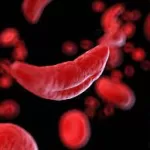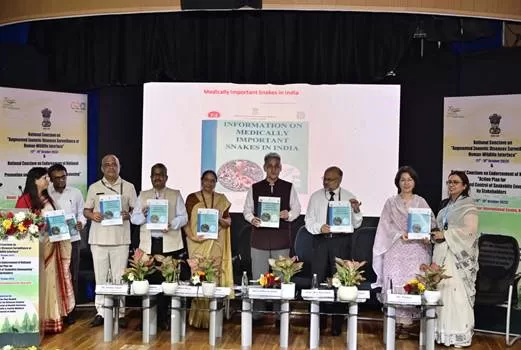
Zoonotic diseases are a significant concern affecting both human and animal health. Union Health Secretary, Shri Sudhansh Pant, emphasized that 75% of recently emerged infectious diseases in the past three decades have been of zoonotic origin. The limited understanding and capacity to identify these diseases, along with restricted diagnostic resources, have led to the neglect of infectious diseases caused by zoonotic pathogens.
Shri Sudhansh Pant made these remarks while delivering the keynote address at the National Conclave on “Augmented Zoonotic Diseases Surveillance at Human – Wildlife Interface” and the National Conclave for Endorsement of the “National Action Plan for Prevention and Control of Snakebite Envenoming” to Stakeholders, organized by the Centre for One Health, National Centre for Disease Control (NCDC). Several distinguished figures, including Dr. Atul Goel, Director General of Health Services, and Smt. R Jaya, Addl. Secretary, Ministry of Tribal Affairs, were present.
Shri Sudhansh Pant stressed the importance of gaining a deeper understanding of the specific factors driving zoonotic diseases to better prepare for future outbreaks. He pointed out that the COVID-19 pandemic highlighted the need to address diseases from both human and animal perspectives, as many emerging infectious diseases result from the evolving human-animal interface and their shared environment. This interconnectedness underscores the necessity for a One Health approach, which harnesses the strengths of each sector to develop integrated and resilient response systems.
In addition to zoonotic diseases, Shri Sudhansh Pant highlighted the emergence of Antimicrobial Resistance (AMR) as a significant global threat. He expressed concern about the rapid spread of multi-drug resistant bacteria and the lack of new antibiotics to combat infections caused by potent antimicrobial agents like Carbapenems. He also emphasized that foodborne diseases, often stemming from poor hygiene, misuse of antimicrobials, environmental contamination, and unscrupulous practices in animal husbandry, pose a substantial threat.
Given these emerging health challenges, Shri Sudhansh Pant underscored the significance of the ‘One Health’ approach, which was reaffirmed under India’s G20 Presidency theme of ‘One Earth, One Family, One Future’ by Prime Minister Shri Narendra Modi.
He outlined various ‘One Health’ efforts undertaken by the Government of India, including programs by the National Centre for Disease Control (NCDC) related to pandemic preparedness stemming from zoonotic threats. These include programs addressing zoonoses, rabies control, leptospirosis prevention, snakebite control, AMR containment, climate change and human health, among others.
Shri Sudhansh Pant also emphasized the need for a dedicated framework to address snakebite envenoming, which is a life-threatening condition with a significant burden in India. He welcomed the endorsement of the Inter-Ministerial One Health Support Statement on the “National Action Plan for Prevention and Control of Snakebite Envenoming” during the event.
Dr. Atul Goel emphasized that the ‘One Health’ concept encompasses not only animals but also plants, emphasizing that spillover effects of zoonotic diseases result from increasing human encroachment into natural habitats.
Dr. Ashok Kumar highlighted the importance of early disease detection under the ‘One Health’ approach to effectively manage spillover effects between animals and humans. He noted that ICAR is collaborating with various institutions at the inter-ministerial level on research.
Smt. R Jaya emphasized that the ‘One Health’ approach aligns naturally with the philosophy of Vasudhaiva Kutumbakam. She highlighted that community mobilization and awareness-raising are crucial contributions that the Ministry of Tribal Affairs will support within the ‘One Health’ framework.

